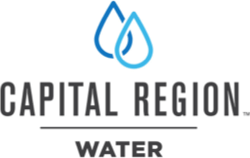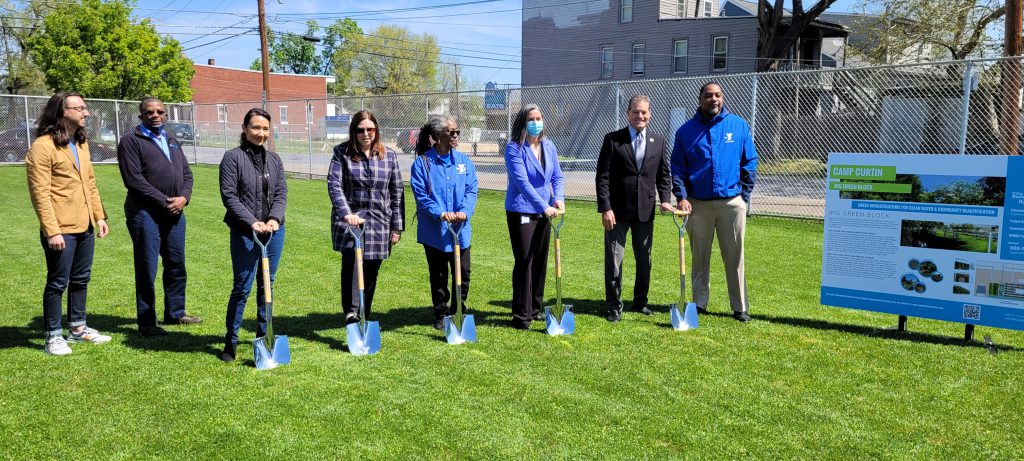Capital Region Water is installing new signs at each of 58 combined sewer outfall locations along Paxton Creek and the Susquehanna River.
Nearly 60 percent of the Harrisburg community utilizes a combined sewer system (CSS). When it rains, combined sewer systems can get overwhelmed and overflow a combination of household sewage and stormwater runoff into surrounding waterways. These permitted combined sewer overflow (CSO) events are a symptom of CRW’s aged infrastructure, not an operational choice, and there is no easy solution or cheap fix to the problem. Capital Region Water is working with stakeholders to develop plans to reduce and eliminate combined sewer overflows, however, an endeavor this grand cannot happen overnight. When wet weather events happen, residents and visitors to the Susquehanna River and Paxton Creek need to be notified and warned to avoid contact with waterways for at least 24 hours.
Capital Region Water is committed to the education and public notification of CSO events. Maintenance and improvement of CSO signage is a key component of CRW’s larger public notification strategy. This week, crews will be updating and standardizing all signage along the Susquehanna River and Paxton Creek. These permanent installations will provide warning details, identification (or asset IDs), and contact information for residents to report a problem. All signs, both existing and new, are being updated and installed in fulfillment of our City Beautiful H2O Program to comply with Capital Region Water’s wet weather compliance obligations.
“It is important for the public to understand exactly what CSOs are, when safety measures should be taken, and how additional educational materials can be accessed,” said Charlotte Katzenmoyer, CEO of CRW.
Capital Region Water’s City Beautiful H2O program was created to actively engage the Harrisburg community while making plans to reduce combined sewer overflows and stormwater pollution in our waterways. CBH2O webpages provide a full program plan, as well as additional material on improvements individuals and businesses can do on their own.
“We all need to pitch in and do our part to prevent unnecessary flooding in our homes and streets,” said Harrisburg Mayor Wanda Williams. “Installing green walls and rain gardens are creative ways homeowners can beautify their properties, and personal parks are also ways we can maintain a green infrastructure.”
Capital Region Water also suggests improving downspout connections and roofing and using pervious pavement to protect the city’s sewer system from raindrop to river. The City of Harrisburg already uses pervious pavement on any new construction projects.
Capital Region Water’s Customer Service Center is open Monday through Friday, 8:30am – 4:00pm. Customers with questions can contact Capital Region Water at 888-510-0606 or via email at info@capitalregionwater.com.

